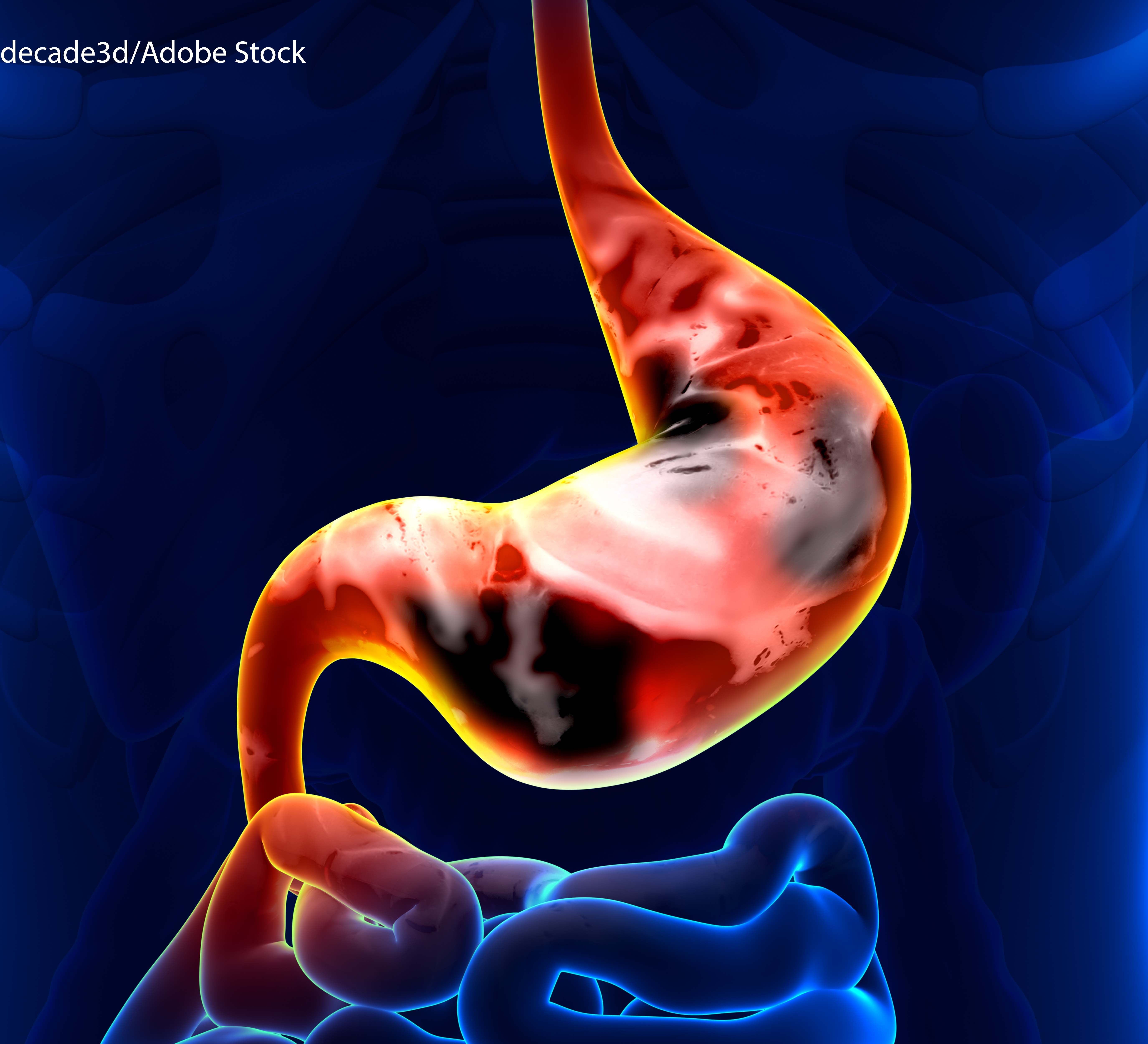Serplulimab Plus Chemo Meets EFS End Point in Early-Stage Gastric Cancer
An independent data monitoring committee suggested the submission of an early NDA for serplulimab plus chemotherapy in early-stage gastric cancer.
An independent data monitoring committee suggested the submission of an early NDA for serplulimab plus chemotherapy in early-stage gastric cancer.

Serplulimab (Hetronifly; Hansizhuang) in combination with chemotherapy has demonstrated positive survival data as a neoadjuvant and adjuvant therapy for early-stage gastric cancer, according to a press release from the developer, Shanghai Henlius Biotech.1
Results came from the double-blind, multicenter, randomized phase 3 ASTRUM-006 trial which evaluated the efficacy and safety of serplulimab and chemotherapy compared with placebo and chemotherapy in patients with early-stage gastric cancer.
The experimental combination met the trial’s primary end point of event-free survival (EFS) in an interim analysis conducted by the independent data monitoring committee (IDMC). Serplulimab plus chemotherapy also achieved a threefold higher pathological complete response rate and a significant reduction in the risk of recurrence compared with the control arm.
No new safety signals were observed with serplulimab plus chemotherapy, and the safety profile was favorable.
The IDMC has recommended that the developer submit an early new drug application for the combination in this patient population.
“Surgery is the cornerstone of gastric cancer treatment, and perioperative therapy is critical to long-term survival,” wrote Professor Jiafu Ji, MD, FACS, a leading principal investigator of the trial, from Beijing Cancer Hospital, in Beijing, China, in the press release.1 “This study is the first to confirm the feasibility of replacing adjuvant chemotherapy with mono-immunotherapy in the postoperative setting. It not only opens a new path to consolidate surgical outcomes and reduce recurrence risk, but also paves the way for innovation in clinical practice.”
In the trial, patients were randomly assigned to receive either serplulimab with chemotherapy or placebo with chemotherapy.
A prior phase 2 study (NCT06576921) compared serplulimab with chemotherapy or placebo to chemotherapy in patients with locally advanced gastric cancer or esophagogastric junction adenocarcinoma.2 In the neoadjuvant treatment phase, treatment consisted of serplulimab at 4.5 mg intravenously on day 1, nab-paclitaxel (Abraxane) at 260 mg/m2 intravenously on day 1, oxaliplatin (Eloxatin) at 130 mg/m2 intravenously on day 1, and S-1 (Teysuno) at 40 to 60 mg orally twice daily on days 1 to 14; therapy cycles lasted 3 weeks for 3 preoperative cycles, with dose adjustments not permitted and dose delays allowed.
In the surgery phase, patients underwent radical surgical resection 3 to 4 weeks after the final cycle of neoadjuvant treatment, with all procedures performed per the Japanese Research Society for the Study of Gastric Cancer.
In the adjuvant phase, patients began treatment 3 to 8 weeks after surgery; patients received the same schedule and doses as in the neoadjuvant phase.
In the placebo group, treatment was the same as in the serplulimab group, except patients received matching placebo instead of serplulimab.
Eligible patients were 18 to 75 years old with primary gastric cancer or adenocarcinoma of esophagogastric junction (AEG) confirmed pathologically by endoscopic biopsy, had at least 1 measurable lesion per RECIST v1.1, an ECOG performance status of 0 or 1, and a life expectancy of at least 3 months.
Reasons for trial exclusion included positive HER2 detection; prior chemotherapy, radiotherapy, hormone therapy, targeted therapy, or immunotherapy; squamous cell carcinoma, adenosquamous cell carcinoma, small cell carcinoma, and undifferentiated gastric cancer; presence of distant metastasis; and contraindications for surgical treatment or chemotherapy.
The primary end point of the trial was the pathologic complete response rate. Secondary end points included the R0 resection rate, the 1-year progression-free survival rate, overall survival, disease-free survival, adverse events, morbidity, mortality, and hospital stay.
“The positive results from this study confirm the significant potential of serplulimab in the perioperative setting for gastric cancer,” said Professor Lin Shen, another leading principal investigator of the ASTRUM-006 trial, from Beijing Cancer Hospital.1 “The innovative exploration of a ‘chemotherapy-free, mono-immunotherapy’ regimen during the adjuvant phase tangibly improves patients’ quality of life, offering a new approach for optimizing clinical strategies.”
Previously, in September 2023, serplulimab was approved for the first-line treatment of esophageal squamous cell carcinoma in China.3
References
- Phase 3 clinical trial of HANSIZHUANG plus chemotherapy meets primary endpoint in neoadjuvant/adjuvant gastric cancer, greenlighting early NDA submission. News release. Shanghai Henlius Biotech. October 9, 2025. Accessed October 10, 2025. https://tinyurl.com/z35xrwn3
- Efficacy and safety of serplulimab combined with chemotherapy as neoadjuvant treatment for locally advanced gastric cancer or adenocarcinoma of esophagogastric junction. ClinicalTrials.gov. Updated March 28, 2025. Accessed October 10, 2025. https://tinyurl.com/3zdad5sk
- Henlius' novel anti-PD-1 mAb HANSIZHUANG (serplulimab) approved for the treatment of ESCC. News release. Shanghai Henlius Biotech. September 22, 2023. Accessed October 10, 2025. https://tinyurl.com/3829zc48